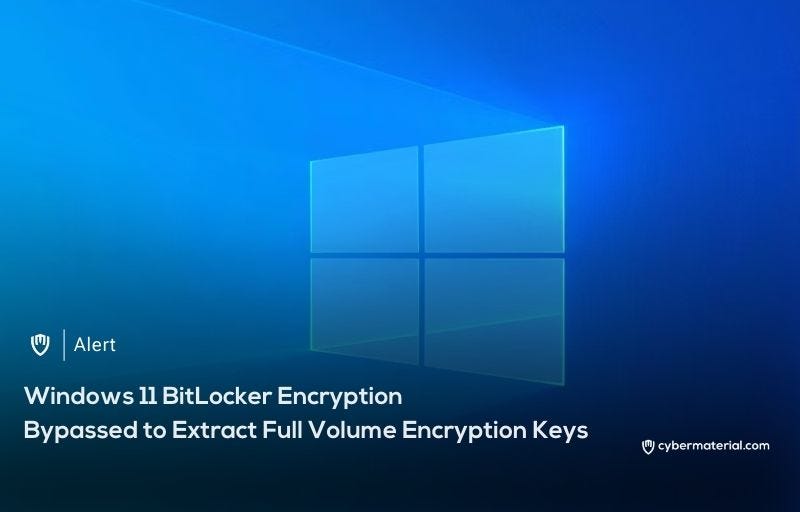
Researchers have recently demonstrated a method that successfully bypasses Windows 11’s BitLocker encryption, exposing Full Volume Encryption Keys (FVEKs) directly from the system’s memory. This atta…

Researchers have recently demonstrated a method that successfully bypasses Windows 11’s BitLocker encryption, exposing Full Volume Encryption Keys (FVEKs) directly from the system’s memory. This atta…